The outdoor air conditioning unit receives high-pressure, hot refrigerant from the compressor and cools it by passing it through coils. Any stumbling block in the process limits the amount of cool air produced, placing the system in danger of overheating. If you want to reset your AC unit to prevent this problem but don't know how to do so, you're in the right place. We have researched and found answers for you.
Here is the easiest way to reset your outside air conditioning unit:
- Turn off the unit before resetting.
- After switching off your unit, you can get to the circuit breaker.
- Hold it for a minute and wait for another 30 minutes.
It’s easy to follow, right? But keep reading as we elaborate on the steps we have mentioned. We'll also cover outside AC units or condensers that you might consider using in the future.
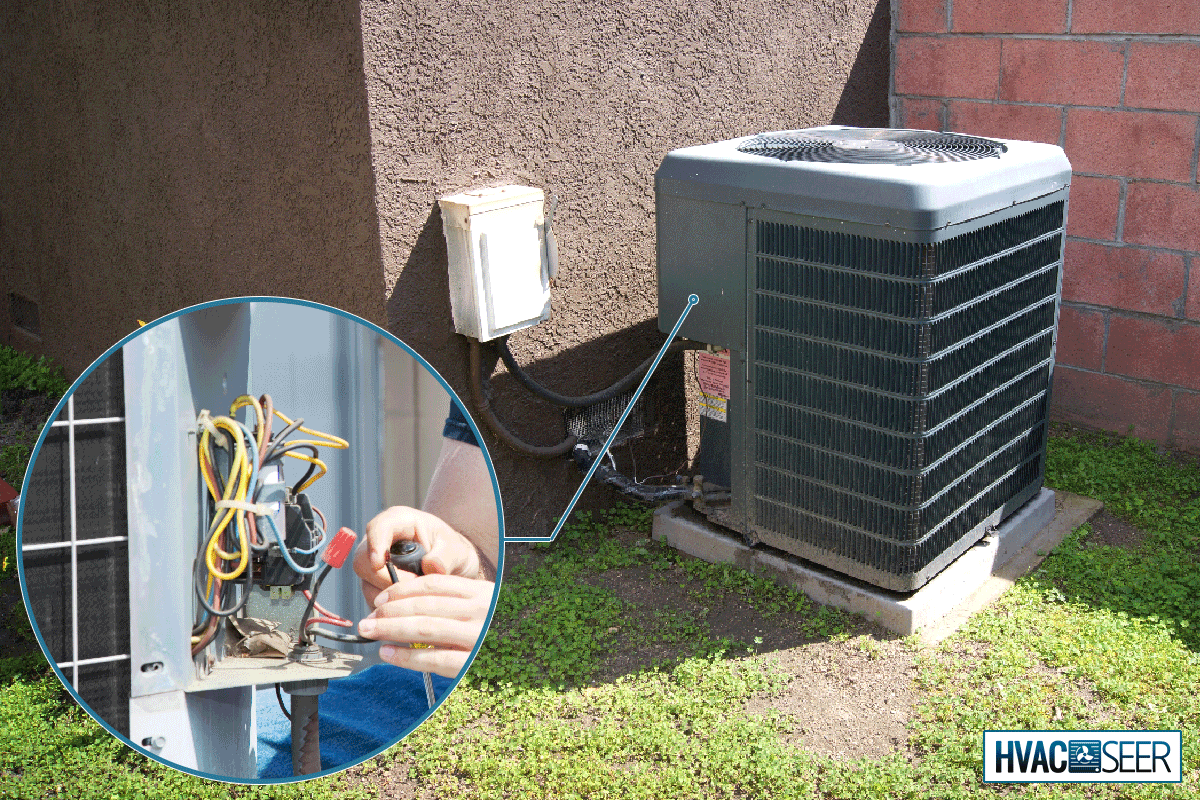
Resetting Outside Air Conditioning Unit
Here’s a list of the detailed steps to reset your outside AC unit:
1. Turn off the unit
Find the red button or the switch on your unit. If you can’t find any switch button, your unit may not have one. All you need to do is to reset it manually; you may check the owner’s manual.
2. Circuit Breaker
Turn off the circuit breaker that connects or runs your heating and air conditioner system.
3. Hold the breaker
After a minute, the AC will reset on its own. Wait 30 minutes, and then you can go on its thermostat and gently turn it on. Now you can set the thermostat to your desired temperature and wait for it to cool, so you'll see if it’s working properly.
When Do You Need To Reset Your Unit?
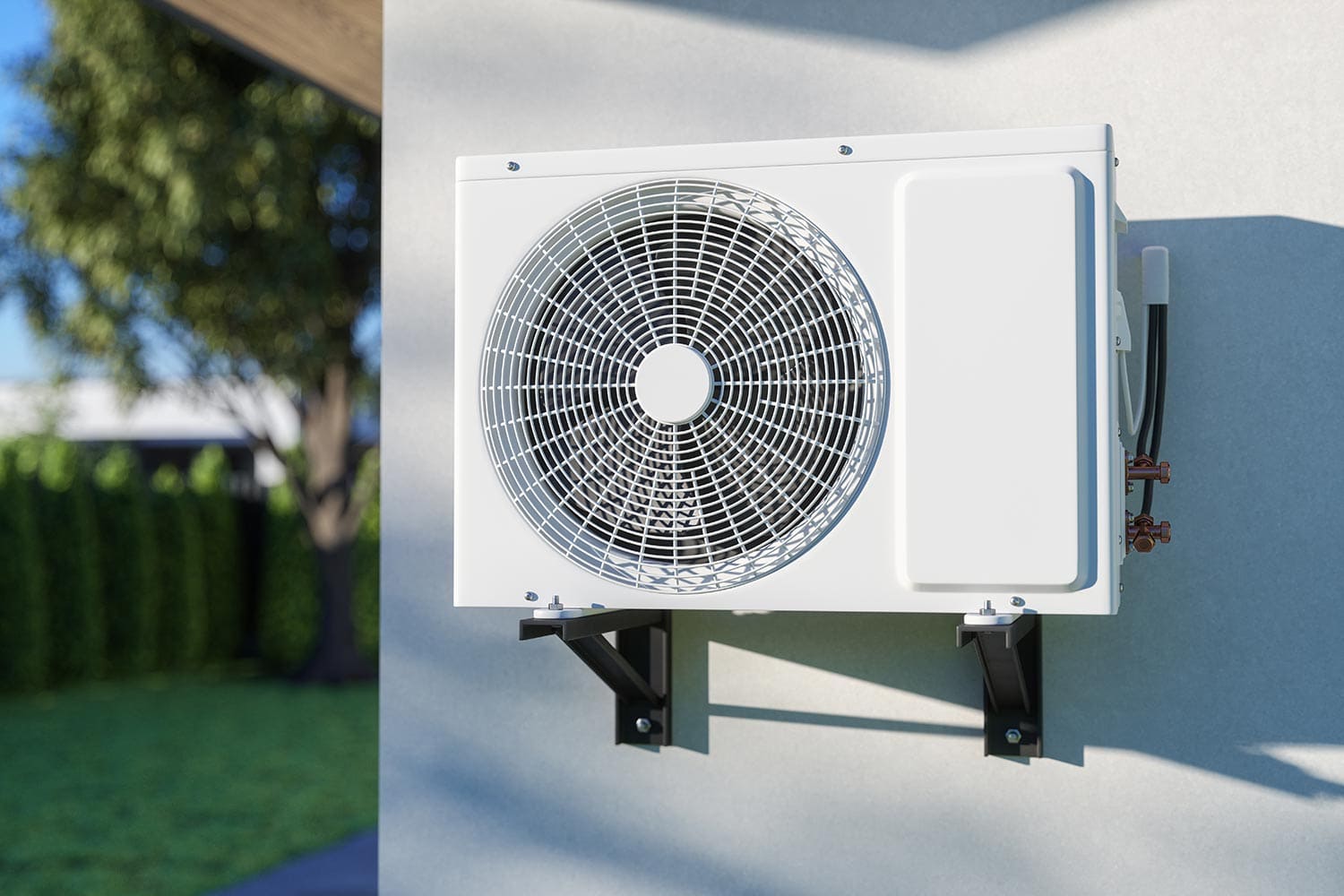
Typically, after a power outage, you need to reset your unit to prevent fire and explosions. Resetting can also correct the AC that is blowing warm air.
In addition, there are times that you need to call a professional to assist you, especially if you feel uncomfortable or there’s a big problem with your unit.
Parts Of An Air Conditioner Unit
An air conditioner circulates cold air throughout your home by eliminating heat and humidity from the interior air. The mechanical components of a refrigerant-based air conditioner or cooling system include a compressor, a condenser coil, and an evaporator coil.
Together, these parts cooperate to quickly change the refrigerant from gas to liquid and back again. The compressor increases its pressure and temperature. The refrigerant goes to the evaporator coil before returning to the residence.
Troubleshooting Common Air Condenser Problems
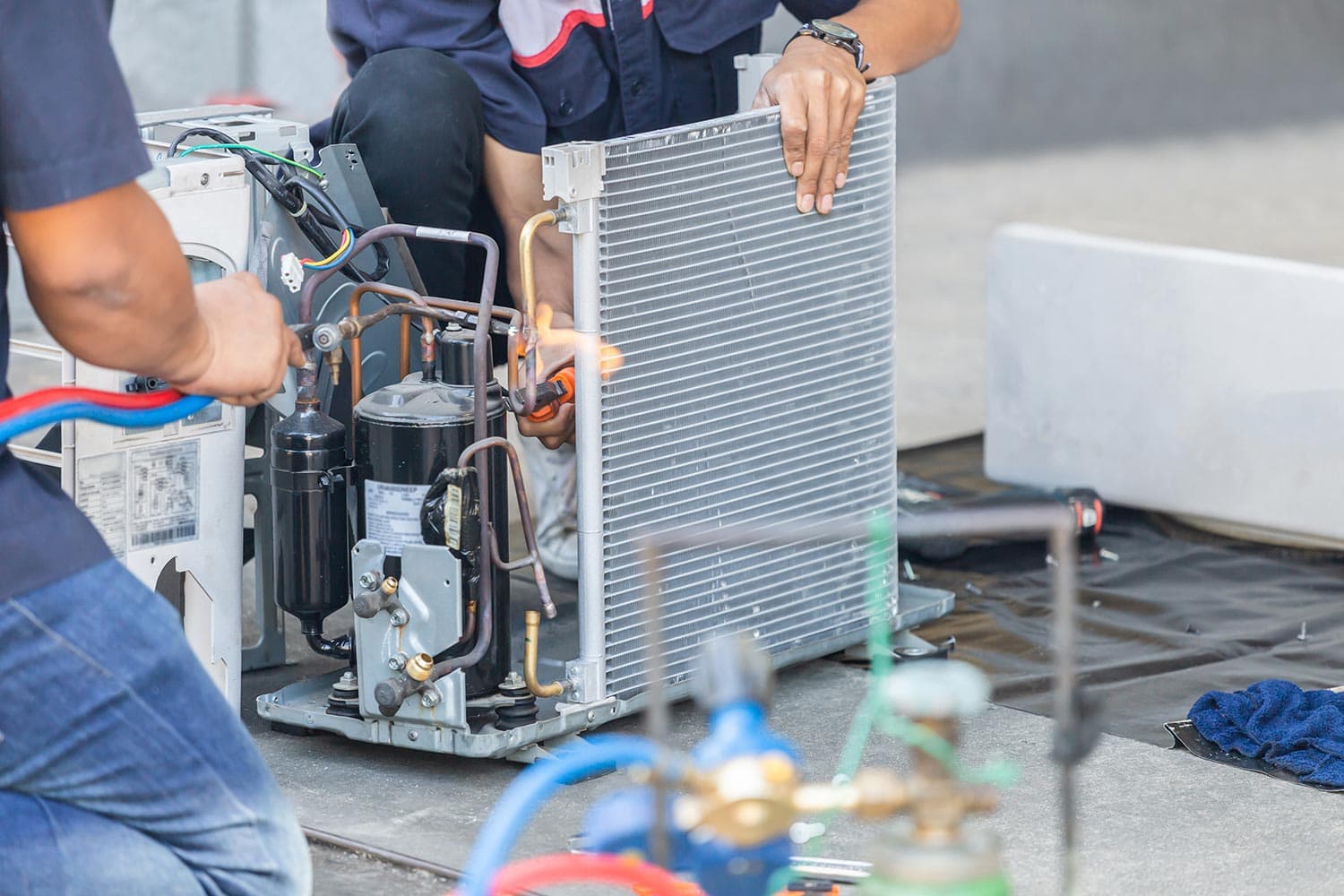
Below are some issues typically encountered with air condensers along with basic methods to fix them:
- Clogged Condenser - An AC unit with a dirty coil may be due to a dirty condenser coil, which may have been stuffed with windblown seeds, dust, and grass clippings. Unclogging the condenser is a must-do so the unit can release the right amount of cooling. You should clean it once or twice a year.
- Refrigerant Leak - It can be caused by tiny holes or cracks in the coil or even a tear. If your unit leaks, the system will work much harder, and it won’t cool down properly. And over time, the connections and joints in your AC can weaken. Refrigerant leaks, however, can be fixed by a professional HVAC technician.
- Sensor Problems - There are certain signs that you have a faulty sensor. If it’s not working, the air conditioning will not maintain your desired temperature, and it might be uncomfortable for you. You can check the sensor near the evaporator coil without touching the part. If you think that it has sensor problems you can call an HVAC pro.
- Failure of Electric Control - This problem happens if you turn your AC on and off often. The fan controls can then wear out. The compressor, condenser motor, fan motor, and blower motor are making an electrical connection to start the unit. Corrosion of wires and terminals can be the culprit, while the disruption of the wires and the terminals can prevent the compressor and motor from turning on. To determine what is causing problems with your AC, you can ask for a professional’s help if you cannot resolve the issue.
- AC Making Noise - AC units can make different noises depending on the problem. A rattling or banging sound means some part has started to loosen up or maybe there’s a problem with the blower. Screeching noise from the compressor or the fan motor and bubbling or hissing sounds can be caused by refrigerant leaks. If you hear a clicking sound, it’s maybe the AC fan or an issue with the capacitor. Lastly, if you hear a buzzing sound, it is caused by faulty electrical components. Addressing these issues require the assistance of a professional.
- Drain Pipe Clogging - This is a common cause of drainage system failure. As air passes over your air conditioner's evaporator coils, it loses humidity and is left in the form of condensed water surrounding the coil. The condensation runs down the drain pipe. Water is not the only item left on the evaporator coil. Dirt and other particles, such as dust, are also left in the drain pan, clogging the drainage system.
Maintaining An Air Conditioner Condenser
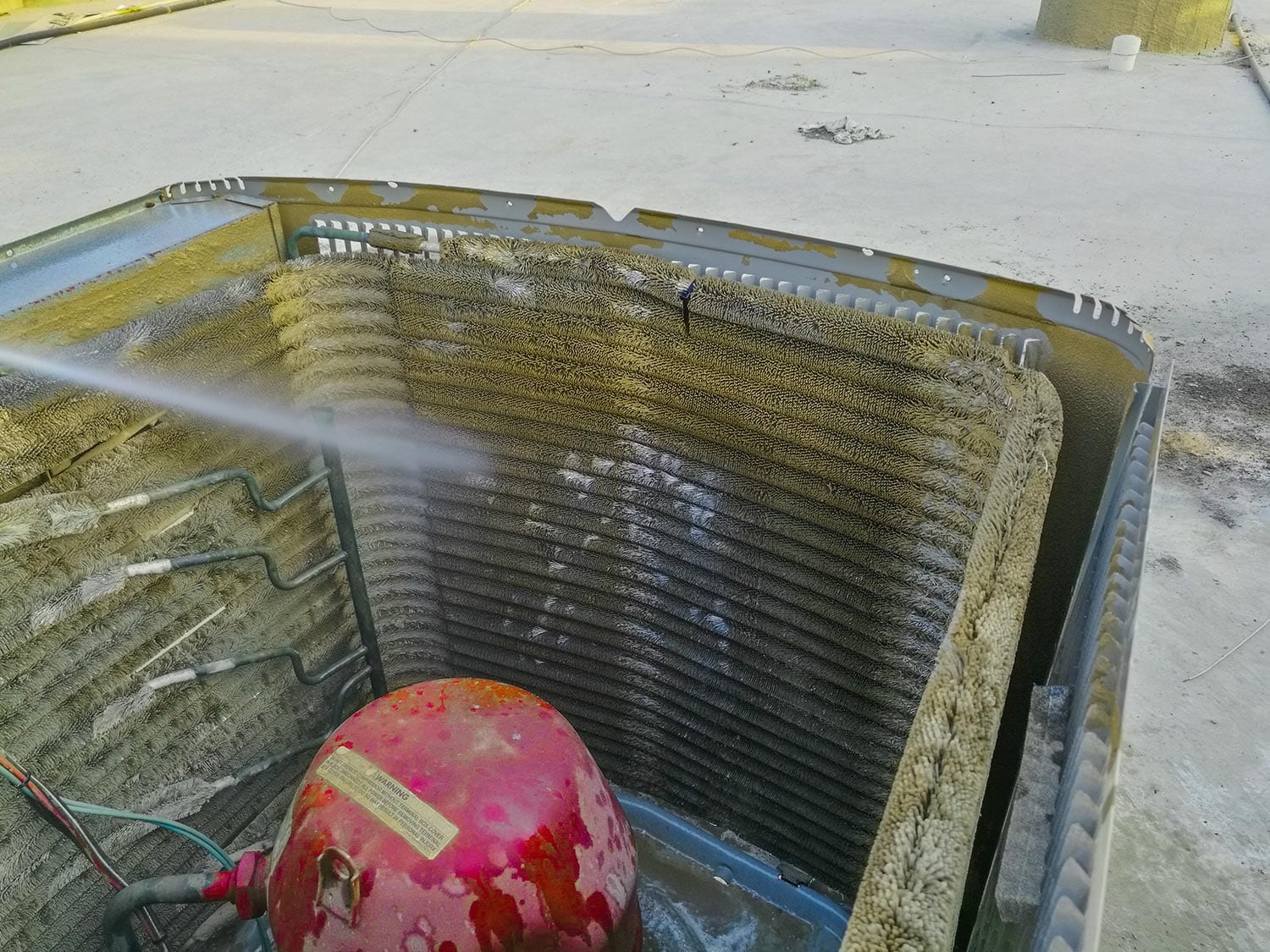
Air conditioner maintenance does have its benefits. In addition to ensuring that the air conditioner will continue working efficiently and give better air quality, maintaining it regularly can also guarantee that it will function well throughout its lifespan.
Also, well-maintained AC units help you to reduce electricity bills, while having dirty condenser coils or clogged filters can cost more energy or spike your electricity bills. It can also help save on repair expenses, as your AC system's proper function will depend on how often you maintain it.
Troubleshooting An AC Unit
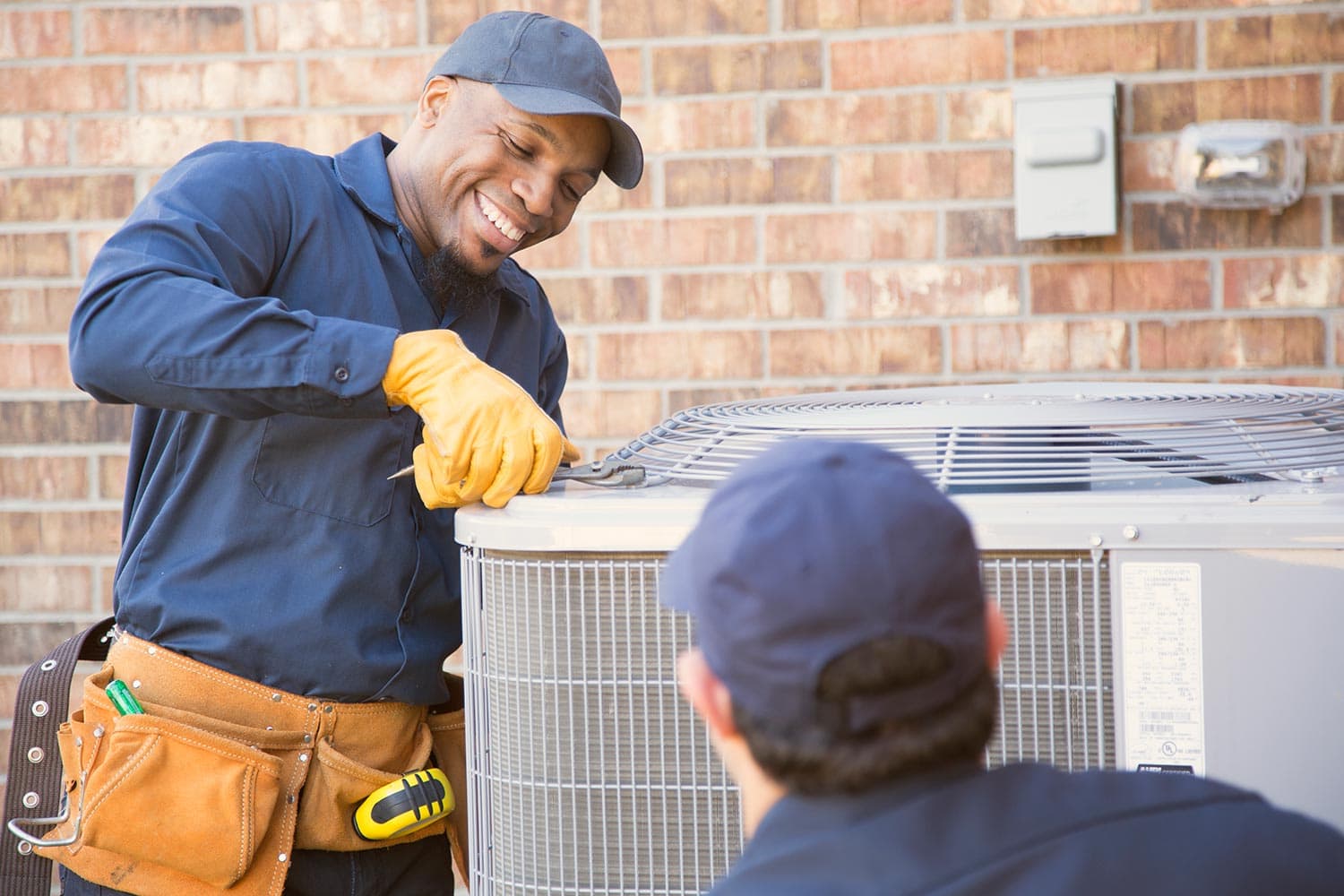
There are numerous ways to troubleshoot your AC Unit. AC troubleshooting helps you recognize the problem with your AC unit, which will conserve energy and time. There are six ways to troubleshoot your AC at the same time as checking the whole AC unit:
- The air filters - Look at the air filters and see if they are clean or not. A dirty filter can reduce the performance of an AC unit when not cleaned thoroughly. Cleaning the air filters can be done independently without a technician.
- Excess water - Excessive water can decrease the output of the AC unit and the unit would malfunction itself. Having a maintenance check-up can prevent the issue.
- The thermostat - Thermostats allow you to check the temperature of your AC unit output. To troubleshoot your thermostat, always check the temperature and fan settings, and if you have a programmable thermostat, check the comfort schedule. If these solutions are inadequate, contact a technician right away.
- The flow of the air - The air ducts would help you in troubleshooting your airflow. If there is no air flowing through your air ducts, check the switch in the main circuit breaker to see if it is off.
- Condenser (outside unit) - Troubleshooting the condenser is quick and easy. If the condenser is running, there is no current issue. However, if the condenser is not running, even when the main switch is on, contact a technician.
- Inside unit - Look at the unit and check if there is ice around it. To thaw the unit, turn it off and keep an eye on the water dripping.
How Long Does An AC Condenser Last?
As we have mentioned, with proper maintenance and care, you can expect a good quality unit to last for up to 10 to 15 years. But it depends on the homeowner. Heavy usage every day and not maintaining the unit regularly can cause fatigue to the system, meaning that it may not last for its actual lifespan.
When To Replace AC Condenser
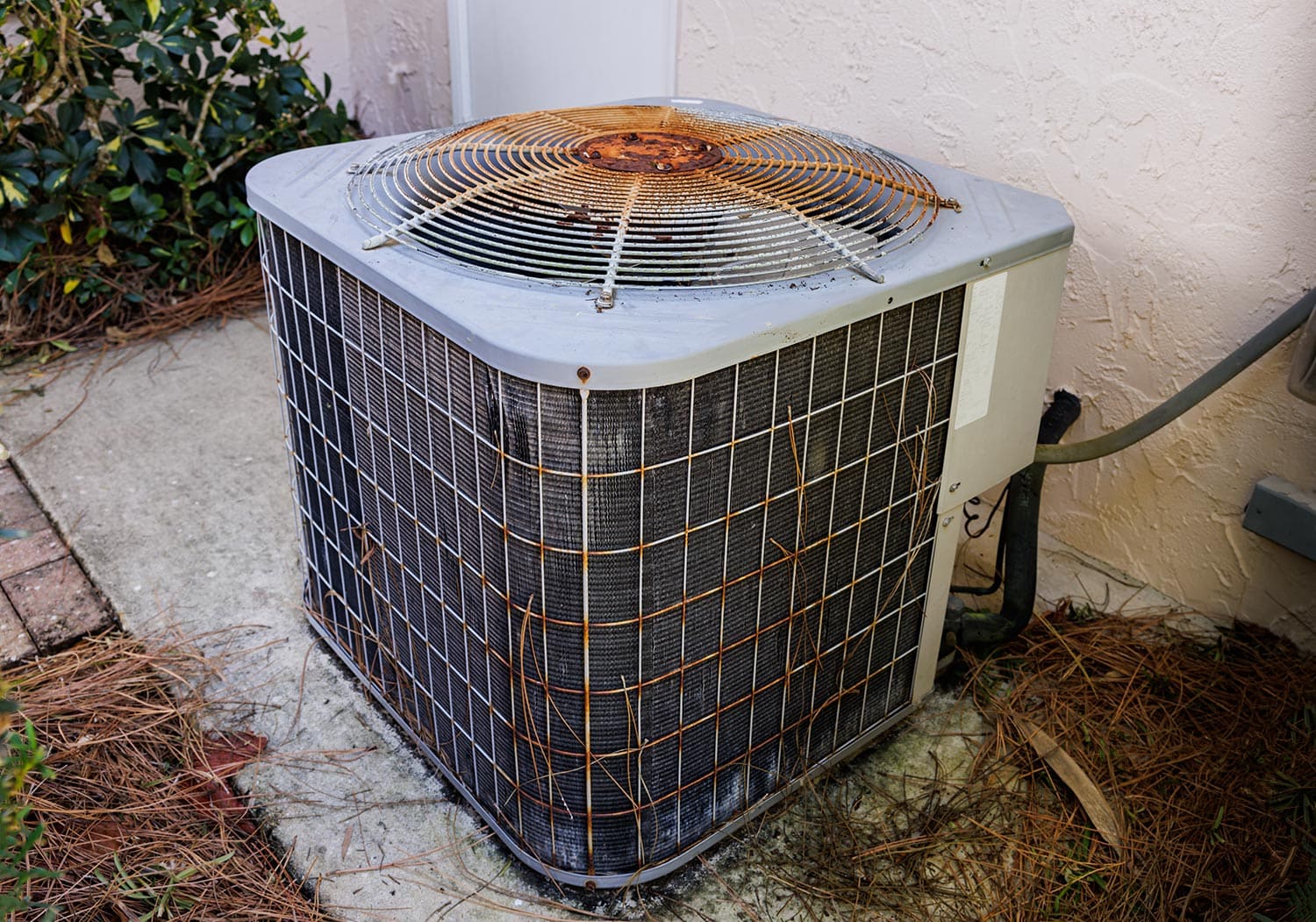
You need to replace an AC condenser after its ideal lifespan of more than 10 to 15 years. As it gets older, the system might break down easily. If your condenser is leaking excessively, it’s a clear sign that you need to replace your whole condenser.
In Closing
Resetting your outside air conditioning unit will often solve problems without costing you a lot of time. Remember the steps on how to reset your outdoor unit or you can always go back to this page.
Before you go, check out these related articles:
Why is My AC Condenser Freezing?
